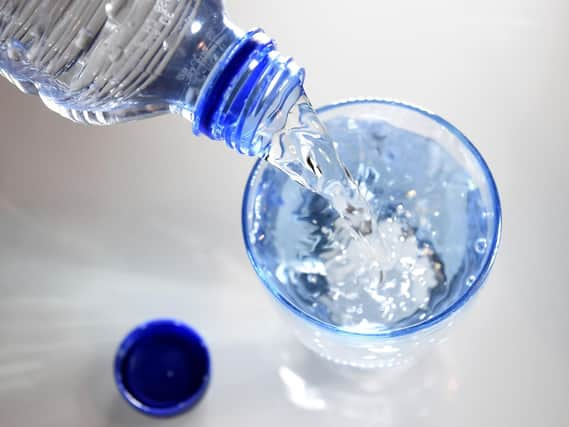Dr's Casebook: Drink the recommended fluid level to protect your heart


t has been brilliant watching the Olympics and now the Paralympics. It is very apparent how important staying hydrated is when athletes are performing in the heat.
In everyday life, however, people often do not drink enough water. The fact is that you actually need water long before you feel thirsty.
Advertisement
Hide AdAdvertisement
Hide AdThe problem is that when you are deprived of water, your cells wilt, just like a plant.
Recent research indicates that staying hydrated throughout life is important and it can in fact prevent people from developing heart failure in later life.
Essentially, heart failure means that the heart is failing to fulfil its functions.
It is not pumping enough blood around the body to the organs and tissues at the right pressure.
Advertisement
Hide AdAdvertisement
Hide AdAs a result, fluid accumulates in the lungs to cause breathlessness, the ankles may start to swell and the person generally feels fatigued.
It affects up to 20 per cent of the over-70s.
The recommended daily fluid intake for a woman varies from one and a half to two litres and for men it is two to three litres a day.
However, Global surveys have shown that many people do not meet even the lower ends of these ranges.
We know that serum sodium is a precise measure of hydration status. Quite simply, when people drink less fluid, the concentration of serum sodium increases. The body then attempts to conserve water, and if these processes are maintained they will eventually contribute to the development of heart failure.
Advertisement
Hide AdAdvertisement
Hide AdIn this study 16000 men in the Atherosclerosis Risk in Communities (ARIC) study were followed up for 25 years with check-ups every five years.
Participants were aged 44 to 66 years on entry. They were divided into four groups depending on increasing levels of sodium.
They also looked at thickening of the walls of the heart’s main pumping chamber, the left ventricle to see if they developed left ventricular hypertrophy, which is known as precursor to heart failure.
They found a highly significant association between the sodium levels and the hydration level throughout middle life with both heart failure and left ventricular hypertrophy 25 years later.
The message is very simple, make sure you drink the recommended fluid level every day to prevent heart failure late on.